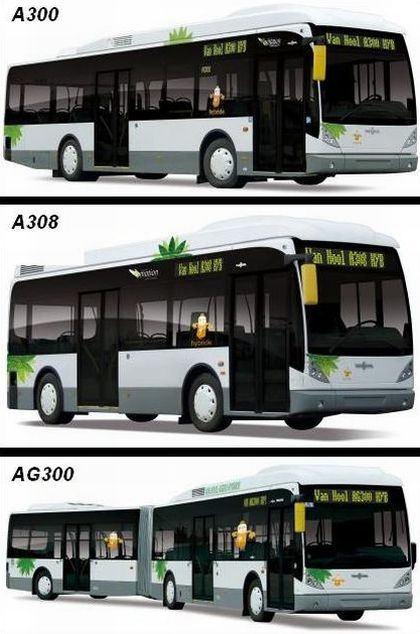
(CZ + EN) Midibus A308, standardní autobus A300 a kloubový autobus AG300.
(UITP Vienna: VAN HOOL presents a full range of hybrid buses.)
(CZ + EN) Midibus A308, standardní autobus A300 a kloubový autobus AG300.
(UITP Vienna: VAN HOOL presents a full range of hybrid buses.)
Koningshooikt, 24.4.2009 - VAN HOOL bude prezentovat na UITP ve Vídni ve svém stánku nabídku hybridních autobusů. Vlámský dopravce De Lijn jako první nasadil autobusy do provozu. Autobusy poptává také region Jižní Holandsko a dopravce Connexxion.
VAN HOOL nabízí tři typy diesel-elektrických hybridních autobusů: midibus, standardní autobus a kloubový autobus. Moderní autobusy kombinují výsledky 60letých zkušeností nástavbáže VAN HOOL s prověřenou technologií Siemens. Autobusy vykazují nožší spotřebu, hlučnost a emise.
Od 10.3. De Lijn byly uvedeny do provozu hybridy v Gentu (Pozn. BUSportálu: po předcházejícím zrušení trolejbusové trakce). Od 20.3. jezdí standardní a později midibus v Leuvenu. De Lijn investuje 15 milionů EUR do 35 hybridních autobusů (z toho 25 kloubových).
Dopravce Connexxion objednal 4 standardní hybridní autobusy A300 s dodáním letos v létě.
VAN HOOL keeps investing in the development of new buses for environmentally friendly public transportation and proposes three types of diesel-electric hybrid buses: a midibus, a standard bus and an articulated bus.
These are definite answers to the demand on the part of public transportation for affordable solutions for environmentally friendly operation.
These modern buses combine the result of 60 years of experience at VAN HOOL as a bus manufacturer with the tried and tested electrical drive technology of Siemens. This constitutes an important contribution to the reduction of fuel consumption, noise level and emission of harmful exhaust gases, in particular fine dust and CO2.
Significantly less noisy and up to 25 % less fuel consumption
A diesel-electric hybrid bus is driven by electric motors that get their power from two sources: a diesel generator on the one hand, and an energy storage system on the other. This works just like a rechargeable battery: it stores the energy that is generated when braking and releases it when the bus drives off or requires a supplementary energy input.
This explains why a hybrid bus is remarkably less noisy, e.g. when pulling away from a stop. Besides that, fuel consumption – depending on the itinerary, traffic density and the driving style – is up to 25 % less than for an ordinary diesel bus, whence less emission of harmful matters like NOx (causes acid rain) and C02 ( causes global warming).
35 hybrid buses for the Vlaamse Vervoermaatschappij.
As from March 10, De Lijn has put into service its first articulated hybrid diesel bus in Ghent. On March 20, the standard hybrid bus was introduced in Louvain and soon after that, the midibus was also launched. After an evaluation of these three prototypes, VAN HOOL will manufacture the other buses from July onward. De Lijn invests 15 million euro in 35 hybrid buses: 5 city buses, 5 ordinary buses and 25 articulated vehicles. 20 buses will be put into service in Ghent, 10 in Louvain and 5 in Bruges. By the end of 2010, all the hybrid buses must have been delivered.
4 hybrid buses for Connexxion (Netherlands)
Under the authority of the province of South-Holland (Netherlands), Connexxion ordered 4 standard hybrid buses (A300 type). The vehicles will be delivered between July and September of 2009. The concept of these vehicles is comparable to that of the buses for De Lijn.
Reintroduction of the hybrid fuel cell bus at the Vlaamse Vervoermaatschappij.
The main characteristic of the fuel cell bus is that there is no emission whatsoever of harmful gases. The energy is supplied by a fuel cell, transforming hydrogen in electrical energy in a reversed electrolytical process propagated by the oxygen in the air. The emission consists of pure water vapour.
Like for the diesel-electric hybrid bus, the energy generated by each braking action is recuperated and stored in batteries for future use. To this end, the electric motors are commuted automatically to act as a generator.
This leads to even less fuel consumption and increased efficiency (compared to a diesel engine or a purely hydrogen-powered drive).
As there are no mechanical moving parts in the fuel cell itself, all the noise typical for fuel or diesel engines is absent, which makes this bus substantially more quiet than a modern diesel variant.
VAN HOOL has developped this purebred hydrogen bus without compromising with respect to the modern diesel variant.
The most important operational aim is passenger capacity. In spite of the weight proper to a hybrid vehicle, this capacitity lies between 94 and 104 passengers, depending on the seat configuration and the standard of comfort for the standees.
Hybrid diesel buses as well as fuel cell buses boast all the characteristics of a modern low-floor bus: low entrance at all the doors, wide door openings, full-length low floor, accessible to disabled passengers, large panoramic windows, electric climate control.
VAN HOOL nabízí tři typy diesel-elektrických hybridních autobusů: midibus, standardní autobus a kloubový autobus. Moderní autobusy kombinují výsledky 60letých zkušeností nástavbáže VAN HOOL s prověřenou technologií Siemens. Autobusy vykazují nožší spotřebu, hlučnost a emise.
Od 10.3. De Lijn byly uvedeny do provozu hybridy v Gentu (Pozn. BUSportálu: po předcházejícím zrušení trolejbusové trakce). Od 20.3. jezdí standardní a později midibus v Leuvenu. De Lijn investuje 15 milionů EUR do 35 hybridních autobusů (z toho 25 kloubových).
Dopravce Connexxion objednal 4 standardní hybridní autobusy A300 s dodáním letos v létě.
VAN HOOL je belgický nástavbář. Dlouhodobě se věnuje vývoji vozidel přátelským k životnímu prostředí.: trolejbusům, plynovým a diesel-elektrickým hybridům.Z TZ Van Hool. Kompletní v angličtině.
Hybridní busy do belgických měst. (Také místo trolejbusů v Gentu.)
UITP Vienna: VAN HOOL presents a full range of hybrid buses.
Koningshooikt, April 24, 2009 - On its stand on the occasion of the UITP congress in Vienna, VAN HOOL presents a full range of hybrid buses. The Vlaamse Vervoermaatschappij De Lijn (the Flemish public transport operator) is first to put these buses into service on its network. The province of South-Holland and Connexxion have also opted for VAN HOOL.VAN HOOL keeps investing in the development of new buses for environmentally friendly public transportation and proposes three types of diesel-electric hybrid buses: a midibus, a standard bus and an articulated bus.
These are definite answers to the demand on the part of public transportation for affordable solutions for environmentally friendly operation.
These modern buses combine the result of 60 years of experience at VAN HOOL as a bus manufacturer with the tried and tested electrical drive technology of Siemens. This constitutes an important contribution to the reduction of fuel consumption, noise level and emission of harmful exhaust gases, in particular fine dust and CO2.
Significantly less noisy and up to 25 % less fuel consumption
A diesel-electric hybrid bus is driven by electric motors that get their power from two sources: a diesel generator on the one hand, and an energy storage system on the other. This works just like a rechargeable battery: it stores the energy that is generated when braking and releases it when the bus drives off or requires a supplementary energy input.
This explains why a hybrid bus is remarkably less noisy, e.g. when pulling away from a stop. Besides that, fuel consumption – depending on the itinerary, traffic density and the driving style – is up to 25 % less than for an ordinary diesel bus, whence less emission of harmful matters like NOx (causes acid rain) and C02 ( causes global warming).
35 hybrid buses for the Vlaamse Vervoermaatschappij.
As from March 10, De Lijn has put into service its first articulated hybrid diesel bus in Ghent. On March 20, the standard hybrid bus was introduced in Louvain and soon after that, the midibus was also launched. After an evaluation of these three prototypes, VAN HOOL will manufacture the other buses from July onward. De Lijn invests 15 million euro in 35 hybrid buses: 5 city buses, 5 ordinary buses and 25 articulated vehicles. 20 buses will be put into service in Ghent, 10 in Louvain and 5 in Bruges. By the end of 2010, all the hybrid buses must have been delivered.
4 hybrid buses for Connexxion (Netherlands)
Under the authority of the province of South-Holland (Netherlands), Connexxion ordered 4 standard hybrid buses (A300 type). The vehicles will be delivered between July and September of 2009. The concept of these vehicles is comparable to that of the buses for De Lijn.
Reintroduction of the hybrid fuel cell bus at the Vlaamse Vervoermaatschappij.
The main characteristic of the fuel cell bus is that there is no emission whatsoever of harmful gases. The energy is supplied by a fuel cell, transforming hydrogen in electrical energy in a reversed electrolytical process propagated by the oxygen in the air. The emission consists of pure water vapour.
Like for the diesel-electric hybrid bus, the energy generated by each braking action is recuperated and stored in batteries for future use. To this end, the electric motors are commuted automatically to act as a generator.
This leads to even less fuel consumption and increased efficiency (compared to a diesel engine or a purely hydrogen-powered drive).
As there are no mechanical moving parts in the fuel cell itself, all the noise typical for fuel or diesel engines is absent, which makes this bus substantially more quiet than a modern diesel variant.
VAN HOOL has developped this purebred hydrogen bus without compromising with respect to the modern diesel variant.
The most important operational aim is passenger capacity. In spite of the weight proper to a hybrid vehicle, this capacitity lies between 94 and 104 passengers, depending on the seat configuration and the standard of comfort for the standees.
Hybrid diesel buses as well as fuel cell buses boast all the characteristics of a modern low-floor bus: low entrance at all the doors, wide door openings, full-length low floor, accessible to disabled passengers, large panoramic windows, electric climate control.
VAN HOOL is a Belgian independant manufacturer of buses, coaches and industrial vehicles. For numerous years now, Van Hool sets the tone with the development of environmentally friendly low-floor buses. After trolley buses, gas buses and diesel-electric hybrid vehicles, this project is an important new step towards zero emission and low noise high-grade public transportation.PR Van Hool
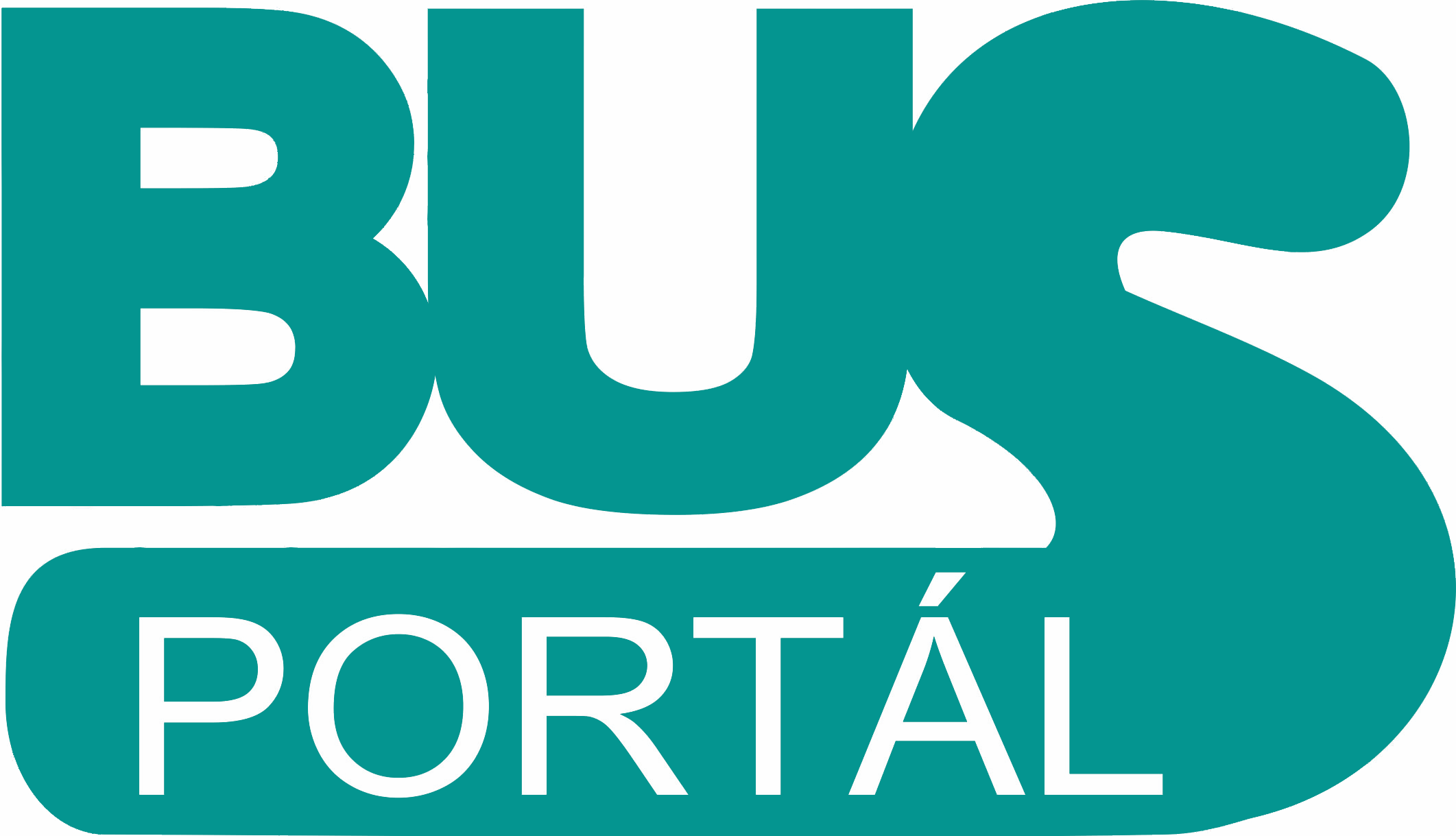

 (002).jpg)

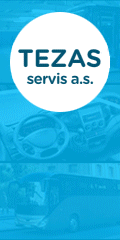
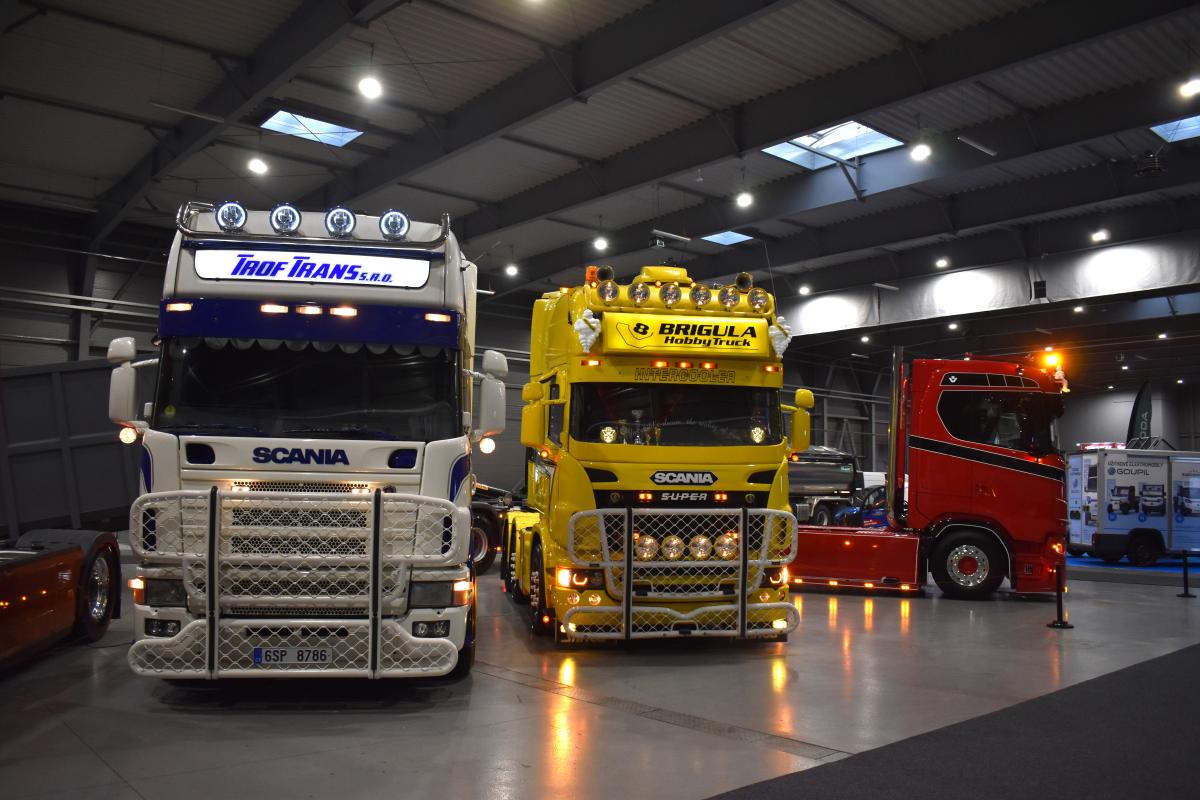 Reportáž z veletrhu Truck&Cargo Expo
Reportáž z veletrhu Truck&Cargo Expo
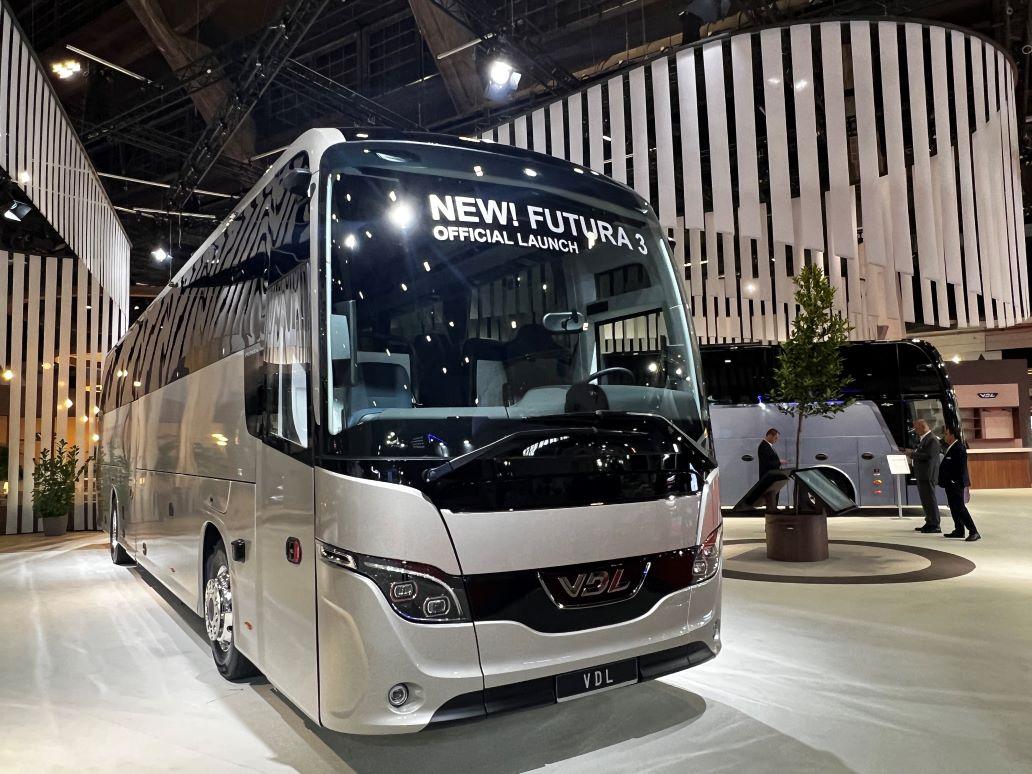 Nový autokar VDL Futura 3
Nový autokar VDL Futura 3
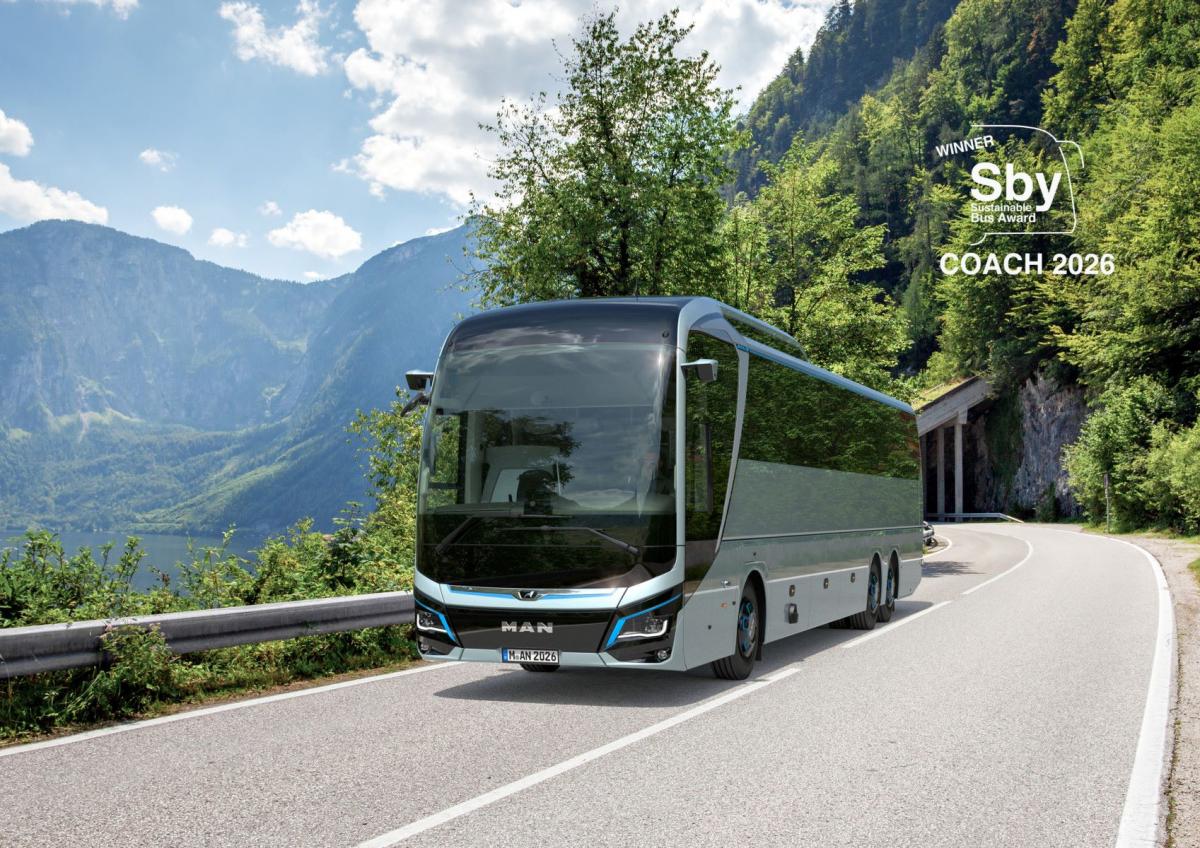 Nový MAN eCoach získal ocenění "Udržitelný autokar…
Nový MAN eCoach získal ocenění "Udržitelný autokar…


